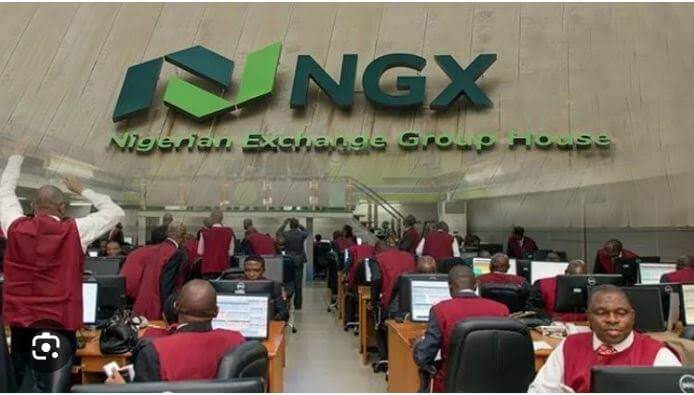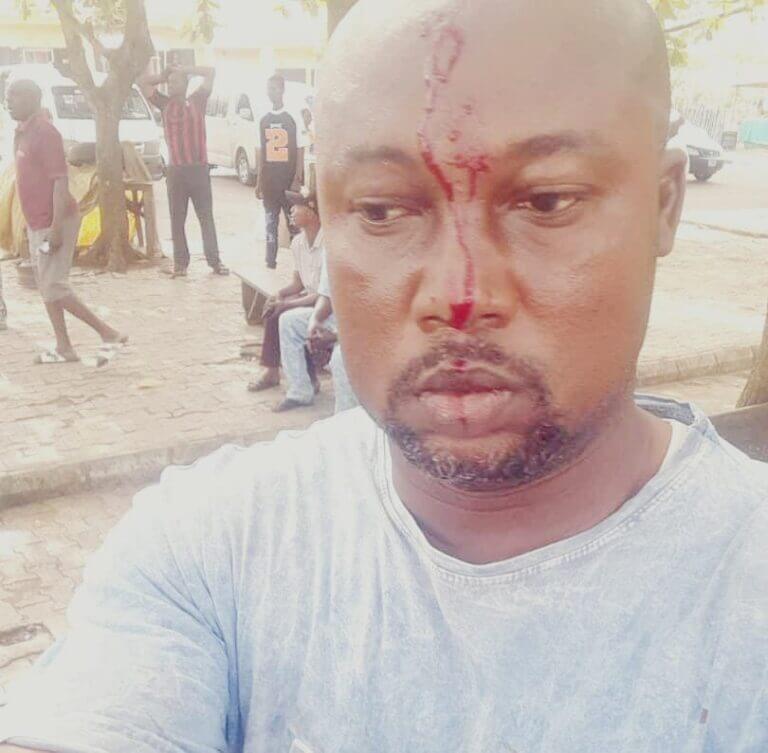- Says N200bn set aside to support businesses
- Reveals $30bn FDI attracted since May 2023
- FG, AfDB open discussion on coastal highway funding
President Bola Tinubu has challenged the notion that the Nigerian economy is in distress, highlighting the unprecedented opportunities for growth and development in the country.
The President said this when he delivered a speech at the Leadership Conference and Awards 2023, held at the Congress Hall of the Transcorp Hilton in Abuja, on Tuesday.
“I should start by respectfully challenging the notion that the Nigerian economy is in distress. Distress suggests helplessness, being at the mercy of something we have no control over. But that is not the case here.
“We are in challenging times, no doubt, but these times have also been marked by unprecedented opportunities, to reset course and to build a new and sustainable economy, away from the rent-seeking and the waste that was once the order of the day,” Tinubu, who was represented by the Minister of Information and National Orientation, Mohammed Idris, said.
This was contained in a statement released by the Special Assistant (Media) to the Minister of Information and National Orientation, Rabiu Ibrahim.
The President shared key initiatives and investment efforts by the administration to support Nigerian businesses, students, and vulnerable households, as well as to enhance food security and attract foreign direct investment.
Tinubu disclosed that intervention funds totaling N200 billion have been set aside to support Nigerian businesses; in addition to a new Federal Students’ Loan program and the Presidential Initiative on CNG.
The N200 billion, according to the President, will be disbursed through three new special intervention funds established to support Nigerian businesses.
On the Presidential Initiative on CNG, the President noted the “imminent rollout of these CNG-powered buses which will bring down the cost of transportation by as much as 50 percent.”
The President also highlighted the substantial increase in revenues accruing to the three tiers of government since the removal of the petrol subsidy.
“This means more funds are available to directly impact the lives of Nigerians through investments in critical infrastructure, social security, and other areas,” he said.
Other efforts of the Federal Government aimed at bringing economic relief to Nigerians include the commencement of negotiations, between the Federal and State Governments and organised labour, for a new minimum wage for the country and the scaling-up of the social investment programme.
“For the poorest and most vulnerable among us, the Social Investment Programme, currently under review to reposition it for maximum impact, will support millions of households with direct cash transfers that will enable them to meet their basic needs.”
The President also reiterated the gains of his administration’s robust investment drive.
“Since we assumed office in May 2023, we have attracted $30 billion in Foreign Direct Investment (FDI) commitments into the real sectors of the economy, including Manufacturing, Telecoms, Healthcare, Oil & Gas, and others.
“Those investments have already started coming into the country. Just a few days ago, I was in Qatar on an official visit where the Emir assured me that a senior government delegation would visit Nigeria after Ramadan to begin taking action on some of the new investments they are looking at here. I have asked the Minister of Finance and Coordinating Minister of the Economy to directly interface with the Qatari authorities to ensure that speedy progress is made,” the President said.
FG, AfDB open discussion on coastal highway funding
In a related development, the Minister of Works, Dave Umahi, has opened a discussion with the African Development Bank on possible funding for the construction of some sections of the Coastal and Trans-Sahara Highways in parts of Nigeria.
The additional funding was the crux of the dialogue between the minister and a delegation from the Africa Development Bank led by the Director of Infrastructure and Urban Development, Mike Salawou, held at the ministry headquarters on Tuesday in Abuja.
A statement by the Special Adviser on Media, Uchenna Orji, said the government was opening up opportunities for investments in infrastructure development along the coastal and trans-Sahara routes.
According to him, these options include the hospitality industry, tourism, agricultural production, estate, park, and industrial business
Umahi added that funding would be required to tackle the sections of the Coastal and Trans-Sahara Highways not yet constructed, awarded, or taken over by concessionaires under the Highway Development and Management Initiative.
This project, which the Minister said would be a measure to provide enduring infrastructure and industrialization along the corridors, is expected to carry a large network of paved highways that will create a good transport environment and trade routes for moving goods and services along the North-South corridors.
The statement read, “The Work Ministry has opened a discussion with the African Development Bank on possible funding for the construction of some sections of the Coastal and Trans- Sahara Highways in parts of Nigeria. The coastal road is 700 km. That is phase one and it is running from Lagos through Ogun State to Ondo State, passing through the coastal States of Delta, Bayelsa, Port Harcourt, Akwa Ibom, and ending in Cross River in 700 kilometres. We have spores to the Ogoja road, the one you did, the African Trans-Sahara road that is going to Cameroon.”
He further stated, “We are sectioning the roads. Just last week, we awarded section one, phase one, and phase one is 47.47 kilometres. It’s already been awarded to Hi-tech Construction Limited. We have phase two, which is about 57 kilometres, taking us from the end of phase one. Phase one ends at Lekki Peninsula. It takes us from Ahmadu Bello Way to Lekki deep sea port. Phase two takes us to the boundary between Ogun State and Ondo State. That’s about 57km”.
“It’s going to be available for a number of funders under the lead investor, Hi-tech Construction Nigeria Limited. So that is available, and when the discussion comes up, then there will be a need for us to meet with Hi-tech and the Minister of Finance, Coordinating Minister of the Economy.”
Earlier in his remark, the Director of Infrastructure and Urban Development said the bank has a mandate to contribute to the sustainable economic development and social progress of its regional members individually and jointly and is therefore prepared as a multilateral institution to offer a robust partnership to the Federal Government of Nigeria, especially by providing technical and financial support for the development of road infrastructure in Nigeria.
He said, “So as the African Development Bank, we are ready to assist you. To make it easy for us, we need to have any studies available to make sure how we can support you on this project. So we are ready, we can see where we can find the resources to support you in structuring the different projects.
“And the third one, the dualisation of the road between Nigeria and Cameroon will foster regional integration between the two countries because I believe Nigeria is Cameroon’s number one trade partner. So, we need to reinforce the modernised infrastructure there.”
The development is part of efforts by the Works Ministry to secure additional funding to rejig the nation’s economy.
In the 2024 budget, the government said it would spend N837bn on constructing and rehabilitating 2,254 roads and bridges in the 2023 and 2024 fiscal years across the country to improve the nation’s deteriorating road infrastructure. Despite this funding, the state of highways remains poor and in need of extra sources of funding.
Last month, the Federal Government secured a €25m grant from the Netherlands for the construction of 28 priority bridges in Nigeria.
The Ministry of Works has also stated that it is engaging concessionaires and other private sector organisations to secure investments in the construction of 35,000km of federal road networks.

